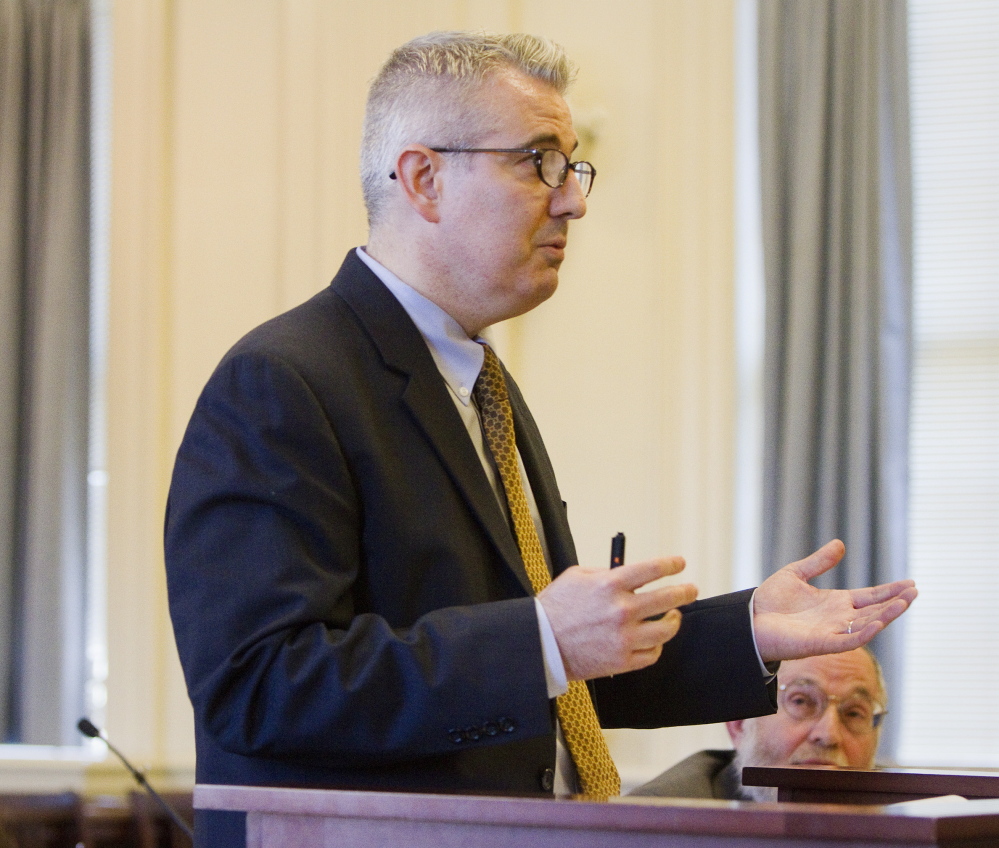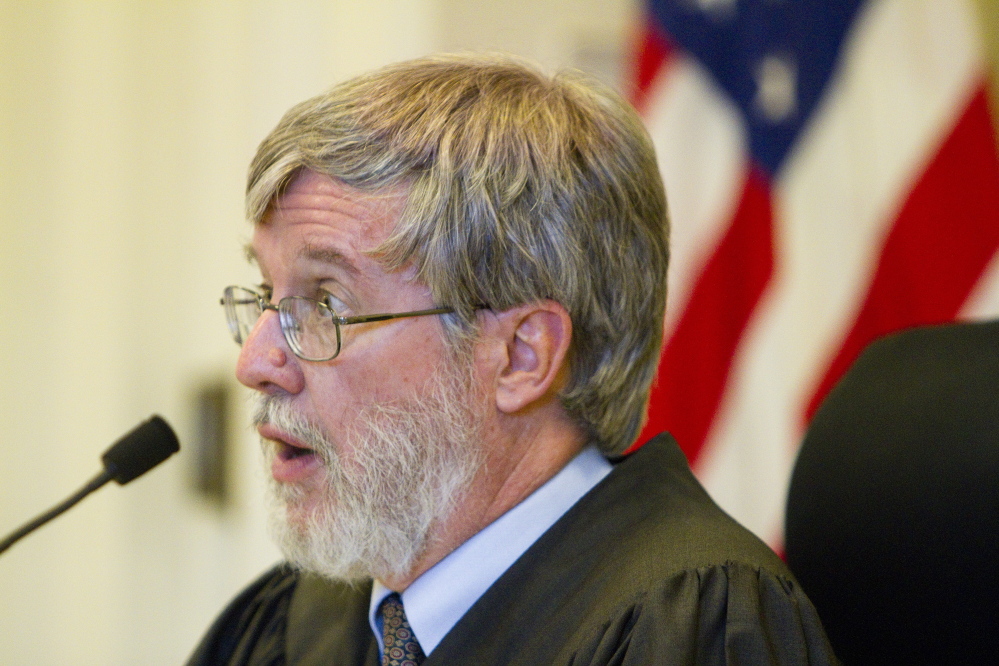ALFRED — The push to legalize possession of marijuana in Maine hit a roadblock Friday when a judge rejected an attempt to force the issue onto the ballot in York.
York County Superior Court Justice Paul Fritzsche sided with town leaders who rejected two citizen petitions calling for them to send a proposed marijuana legalization ordinance to voters in November. Fritzsche said legalization advocates were asking the town of York to approve something it cannot regulate because marijuana use is governed by state and federal law, not local ordinances.
“It’s really not a lawful topic,” the justice said. “It’s not one that is the area of governance for the municipality.”
Unless quickly overturned on appeal, Fritzsche’s decision means only two Maine cities – South Portland and Lewiston – will vote on the issue in November. Legalization advocates wanted it on the ballot in three communities as part of their push for a statewide vote in 2016.
The South Portland and Lewiston city councils both decided in favor of letting voters take up the legalization question in November. Last year, Portland voters overwhelmingly supported a legalization referendum, making the city the first community on the East Coast to adopt an ordinance that declares it legal for adults 21 and older to possess up to an ounce of marijuana, as long as it is used in private.
Passage of the referendum proposals will have more political effect than legal effect because police agencies have said they will continue to enforce the state law banning marijuana possession and use, except for certain medical reasons.
The dispute over access to the York ballot ended up in court after town selectmen twice refused to forward the proposed ordinance to a referendum, saying the question is not lawful because marijuana use is illegal under state law.
The southern coastal town of about 12,500 residents is the first Maine community to refuse to send the legalization question to voters.
The push to get the question on the ballot in Maine comes as polls show Americans are increasingly supportive of legalization.
Last year was the first time a clear majority of Americans – 58 percent – said in an annual survey that the drug should be legalized. When the Gallup polling company first asked the question in 1969, only 12 percent favored legalization.
The New York Times, in an editorial in July, came out in support of letting states open the door to legal marijuana use and argued that the war on drugs has been a failure when it comes to pot.
In 2012, Washington and Colorado became the first states to legalize recreational use of marijuana, and advocates see Maine as one of the next states to declare recreational use by adults to be legal.
Unlike in South Portland and Lewiston, the York town charter requires selectmen to schedule referendums only on proposed ordinances that are “lawful.”
“The town could not pass an ordinance legalizing marijuana in York any more than it could pass an ordinance lowering the speed limit on public roads to 2 mph,” Mary Andrews, chairman of the select board, wrote in a court affidavit.
In a response to the complaint, attorneys for the town of York said the plaintiffs “do not have a constitutional right to compel the town to go through a futile, purely symbolic electoral exercise calling for approval of illegal conduct.”
And in court Friday, Daniel Murphy, an attorney for the town, said legalization proponents are “using the referendum process as a megaphone to spread the word” about their push to legalize the drug.
In its court filing, the petitioners’ attorney, David A. Lourie of Cape Elizabeth, said failure to place the question on the ballot will “disenfranchise many voters.” He said the decision should be left to voters, not the Board of Selectmen.
Supporters say the large number of signatures – nearly 1,000 residents signed the two petitions – and the ease with which they were collected show there is support in town for legalizing marijuana.
Fritzsche, however, sided with the town, saying the petitioners were asking the town to hold a vote on something it has no power to regulate.
Lourie said Friday he is disappointed with the decision and will consider whether to appeal it to the Maine Supreme Judicial Court. He criticized York selectmen for stopping a public vote on the issue, especially in light of the number of residents who signed the petitions to put it on the ballot.
“Their stifling the public sentiment in the town of York is unfortunate,” he said.
The legalization movement in Maine is spearheaded by the Marijuana Policy Project, the same group that successfully advocated for a similar ordinance in Portland last fall.
Supporters of Citizens for a Safer York and the Marijuana Policy Project in July submitted 100 signatures to the Board of Selectmen, which voted 3-2 against placing the question on the ballot. The groups then collected an additional 767 signatures on a separate petition to bring the matter before the board a second time with the same result.
The measure rejected in York and being considered in South Portland and Lewiston would change local ordinances to declare it legal for adults 21 and older to possess up to an ounce of marijuana in those communities. It would remain illegal to display or use marijuana in public.
Gillian Graham can be contacted at 791-6315 or at:
Twitter: grahamgillian
Send questions/comments to the editors.





Success. Please wait for the page to reload. If the page does not reload within 5 seconds, please refresh the page.
Enter your email and password to access comments.
Hi, to comment on stories you must . This profile is in addition to your subscription and website login.
Already have a commenting profile? .
Invalid username/password.
Please check your email to confirm and complete your registration.
Only subscribers are eligible to post comments. Please subscribe or login first for digital access. Here’s why.
Use the form below to reset your password. When you've submitted your account email, we will send an email with a reset code.